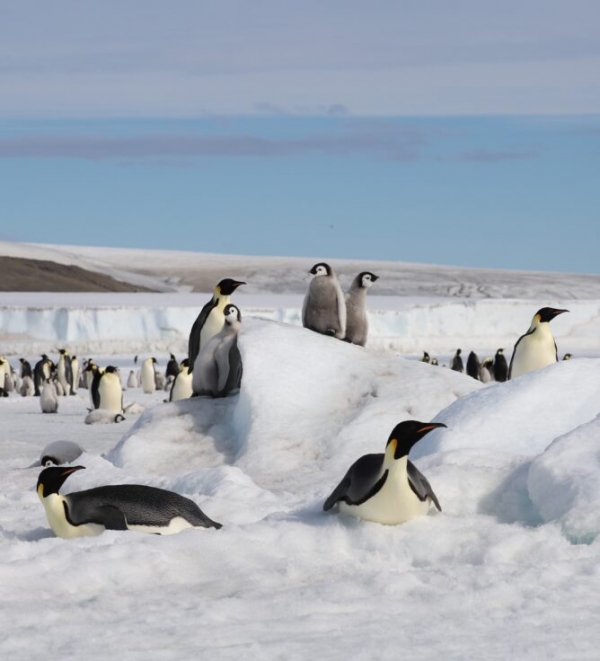Record low levels of Antarctic sea-ice in late 2023 resulted in breeding failures in a fifth of the continent’s emperor penguin colonies, according to a new study from British Antarctic Survey (BAS).
Record low levels of Antarctic sea-ice in late 2023 resulted in breeding failures in a fifth of the continent’s emperor penguin colonies, according to a new study from British Antarctic Survey (BAS).
With 14 of 66 colonies and tens of thousands of penguins affected, the finding is not as severe as the 2022 season, in which 19 colonies — almost 30% — were impacted, but there is an increasing trend of colonies losing chicks as a result of ice-loss before the end of the breeding cycle, with 2023 the second worst year since the observations began in 2018.
Emperor penguins breed and raise their chicks on land-fast sea ice – stable sea ice that is firmly attached to the shore. If this ice breaks up too early, the chicks go into the sea before they grow their waterproof feathers — known as fledging. This leads to high, or sometimes total, chick mortality at the colony.
Read more at: British Antarctic Survey
Emperor penguins breed on land-fast sea ice. (Photo Credit: Peter Fretwell, BAS)




